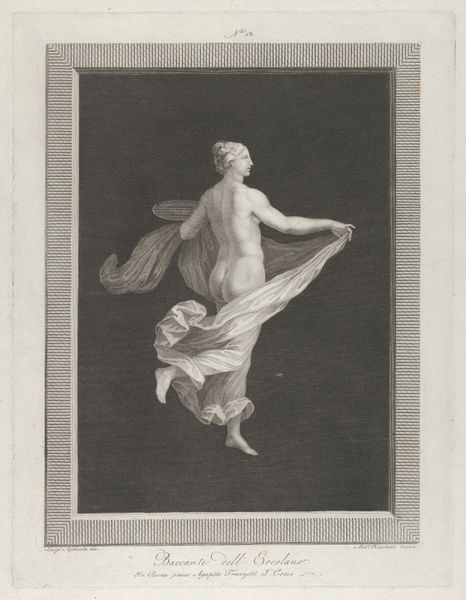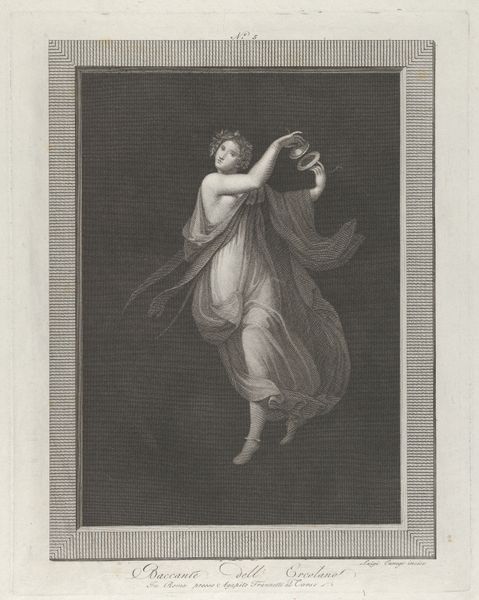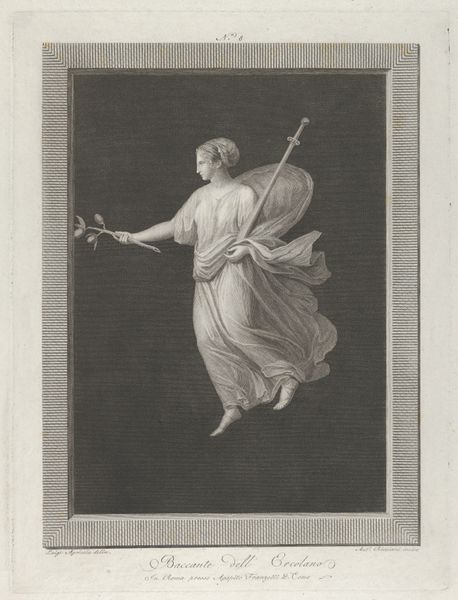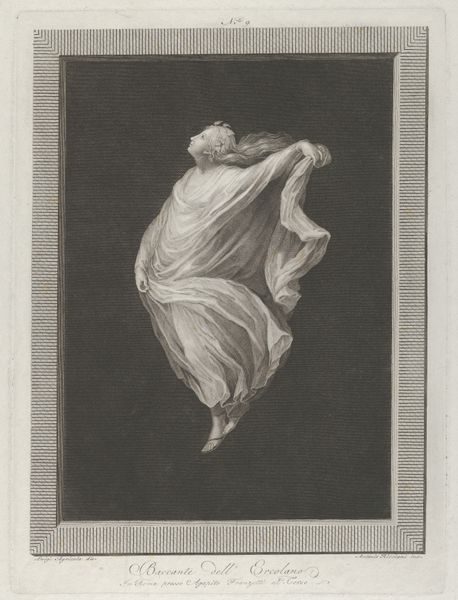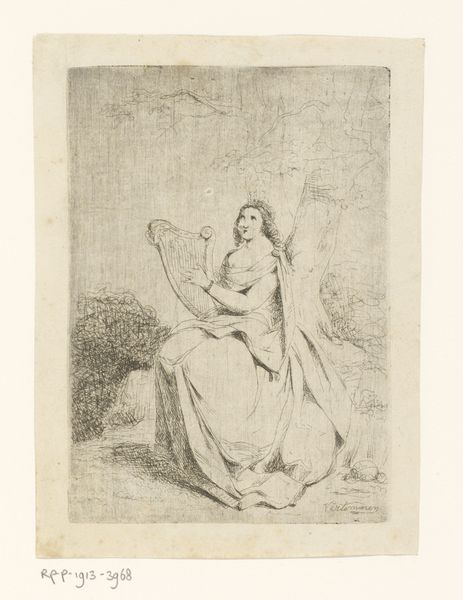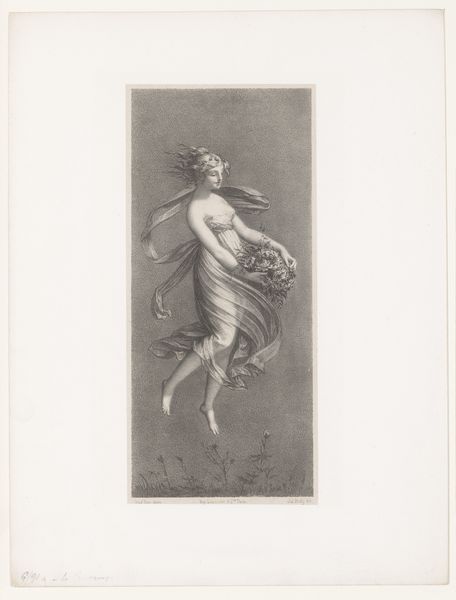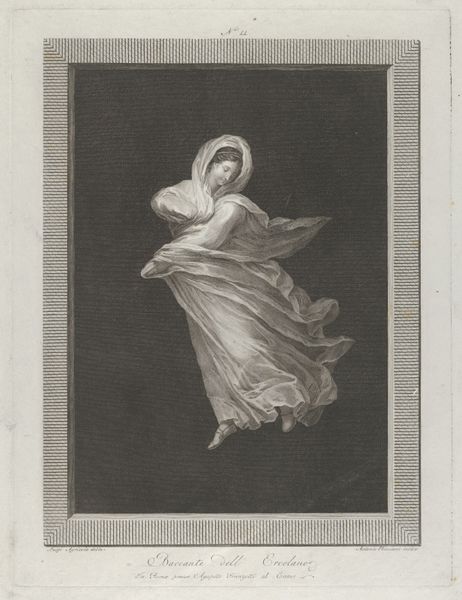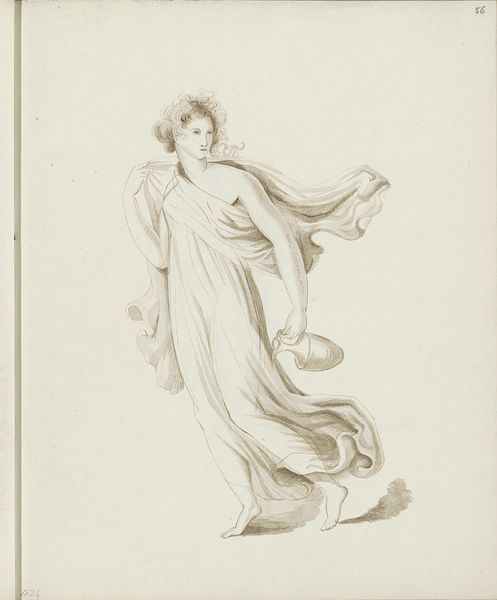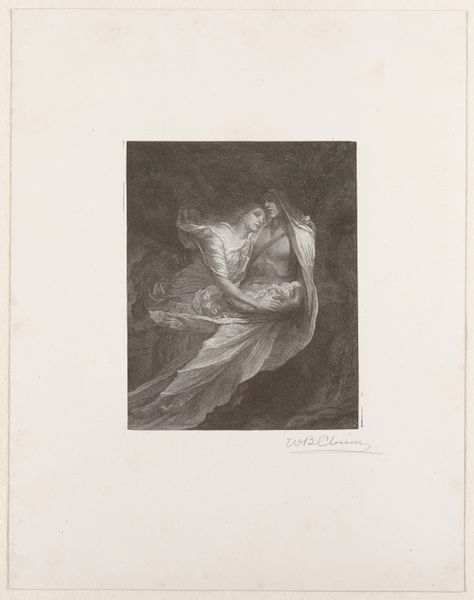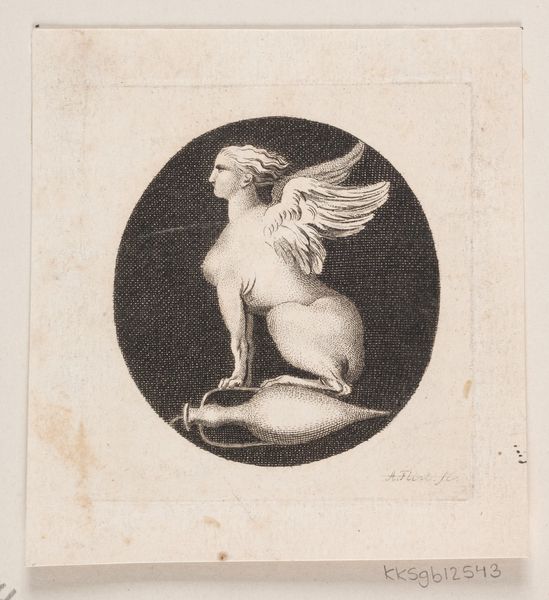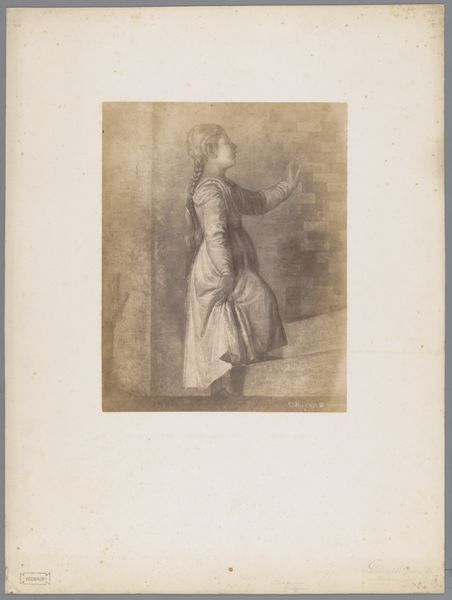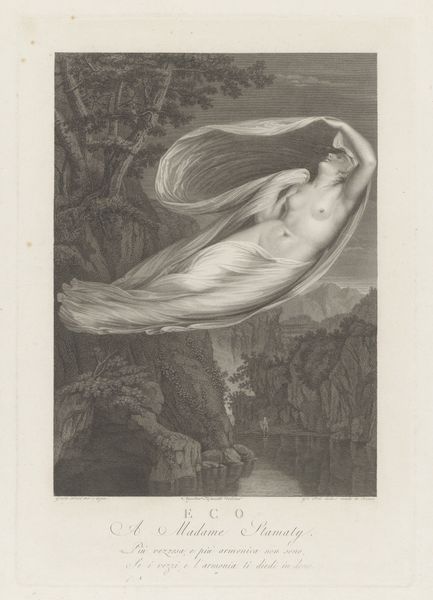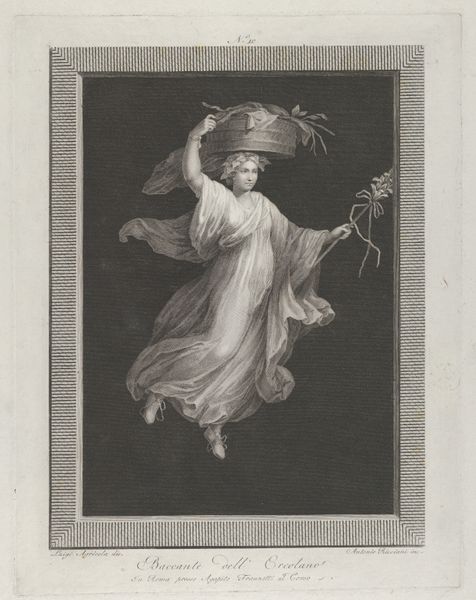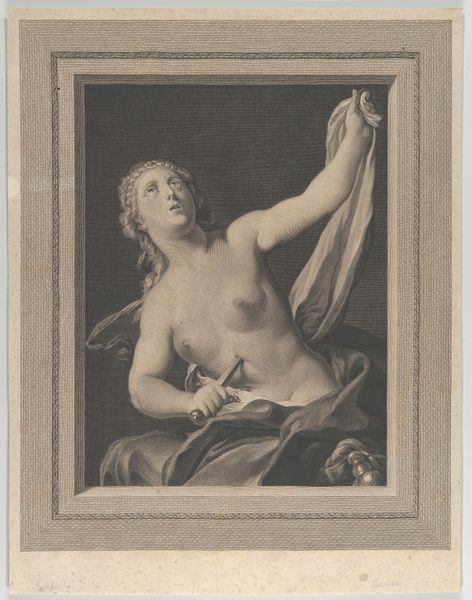
A bacchante holding a pitcher in her right hand and carrying in her left hand an oval dish containing three figs, set against a black background inside a rectangular frame 1795 - 1820
0:00
0:00
drawing, print, engraving
#
portrait
#
drawing
#
neoclacissism
#
allegory
# print
#
classical-realism
#
figuration
#
line
#
tonal art
#
academic-art
#
engraving
Dimensions: Plate: 12 15/16 × 10 1/4 in. (32.9 × 26 cm) Sheet: 16 5/16 × 12 3/8 in. (41.5 × 31.4 cm)
Copyright: Public Domain
Editor: So, this is "A Bacchante holding a pitcher...", a print by Aloysio Cunego from sometime between 1795 and 1820. There's something haunting about it, perhaps the stark contrast against the black background. It makes the figure feel almost spectral. What strikes you when you look at this work? Curator: Spectral is a fantastic observation. To me, she seems caught between worlds. The Bacchante, usually a symbol of ecstatic frenzy in her devotion to Bacchus, here possesses a tranquil composure that verges on melancholic. What are your thoughts on the objects she is holding? Editor: I hadn't really considered them… the pitcher and the figs on a plate. They seem to indicate some kind of ritual, or offering? Curator: Precisely. And isn’t it interesting to see that she offers these gifts in silence? Think about the Neoclassical ideals – this figure isn’t writhing or shouting in a Bacchic dance, but instead floats solemnly across time and space. Does this silence resonate with you, especially in comparison to other depictions you might know of Bacchantes? Editor: Yes, it does. I think it's that restraint, that internalisation, that makes her feel so much more potent. She's not *performing* ecstasy; she *embodies* it, in the very air around her. The control communicates even greater intensity than a typical wild portrayal might. I almost feel like *I* should be offering *her* something. Curator: Exactly! A fair assessment that brings to life the work. I learned new appreciation of a neoclassical approach that suggests a fresh idea when one applies such restraint. Editor: Definitely! Seeing how such an active concept, as embodied by the Bacchante, gets filtered and portrayed through Neoclassical art adds to both the aesthetic experience and its narrative impact.
Comments
No comments
Be the first to comment and join the conversation on the ultimate creative platform.
